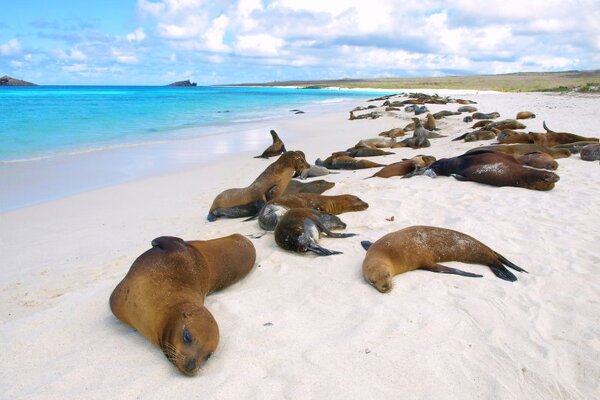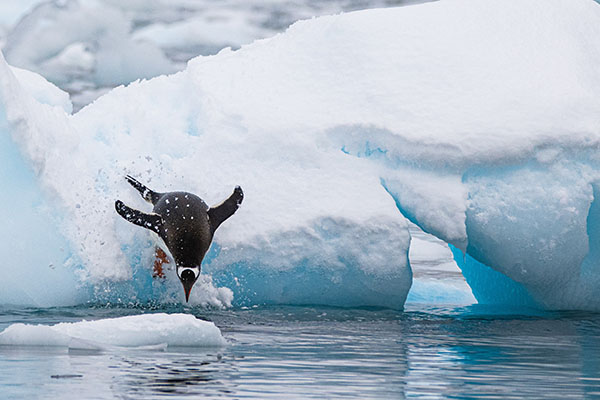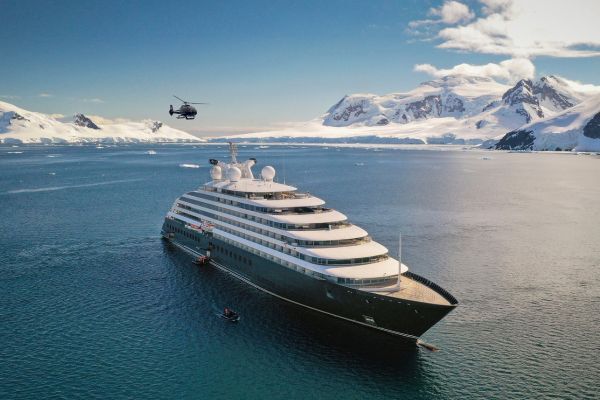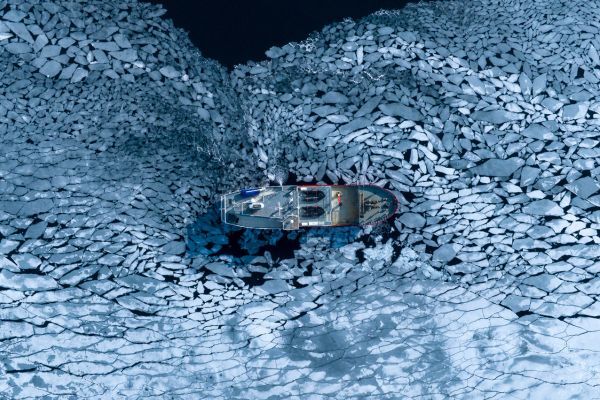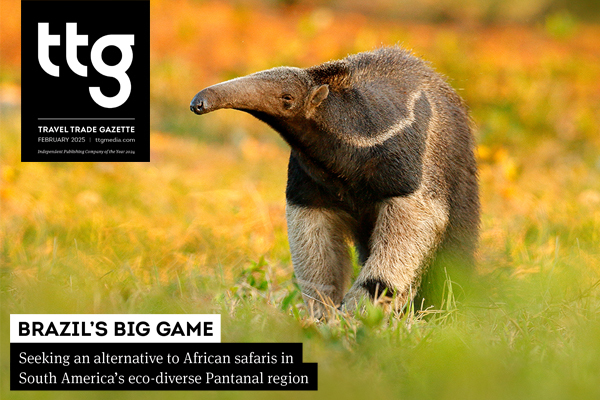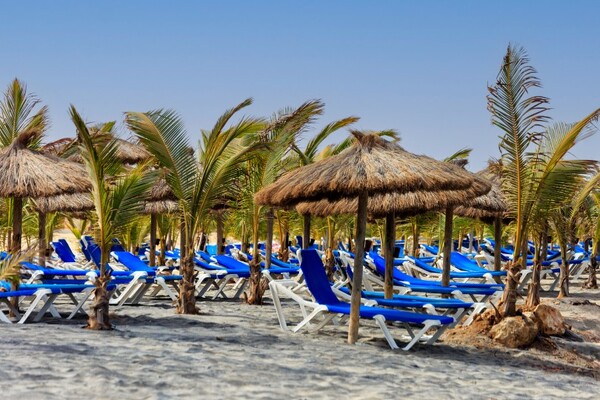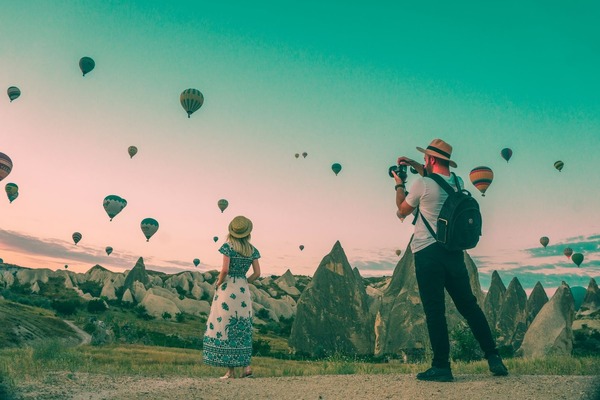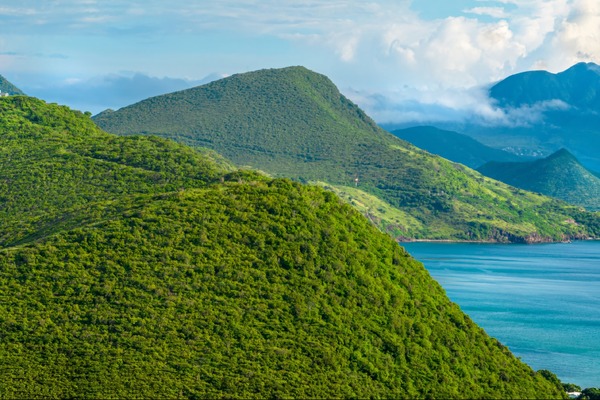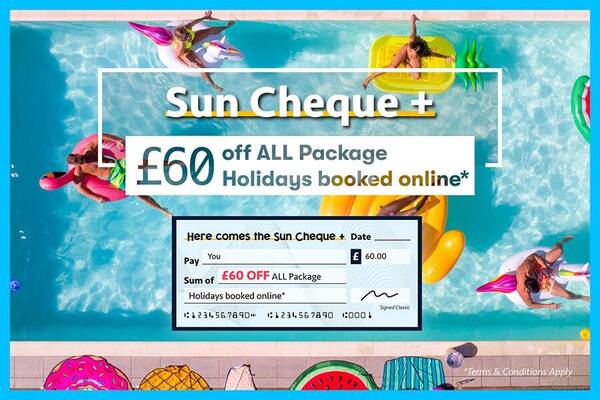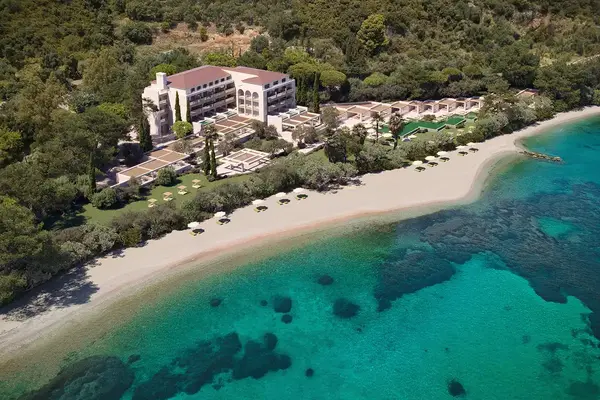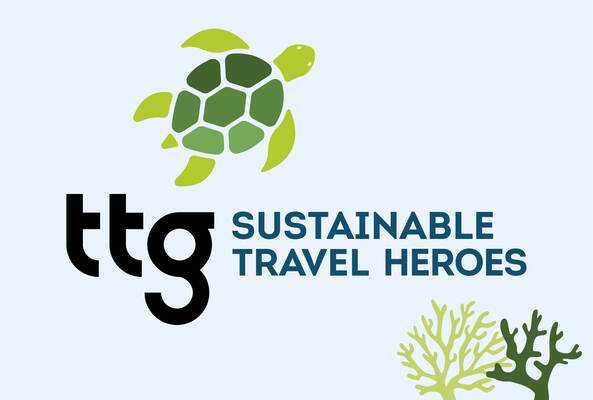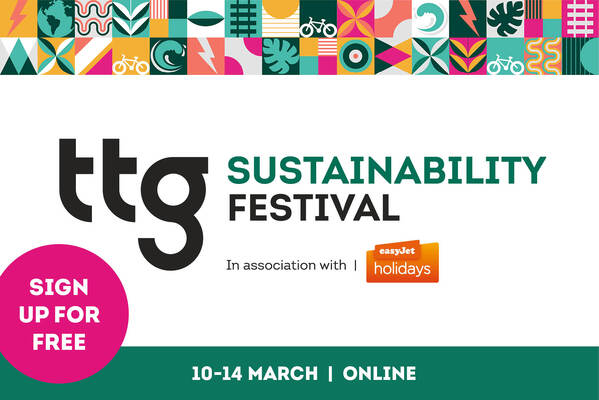Overcapacity, influencers and the rise of Greenland, plus six other expedition cruise talking points
 Harry Kemble
Harry KembleHow can agents help expedition cruise lines fill their new ships? Should these lines invite influencers onboard to promote their products? Where do micro cruise operators sit in the growing expedition cruise market? And are we in danger of sleepwalking into a price war?
These were just some of the questions raised during the first-ever Expedition Cruise Network conference at London’s Bankside Hotel this week (1-2 October).
Around 100 delegates heard from a range of suppliers about the future of the expedition cruise sector, its recovery from the pandemic and the challenges it faces today.
The value of the expedition cruise market is estimated to be around $1.3 billion, with 96 ships currently in operation and more than 15,000 berths available across the sector.
Running alongside a full programme of sessions were get-togethers between agents and suppliers, some of whom were meeting the UK and Irish trade for the first time.
Here are the key takeaways from the two-day event.
’Too much inventory’
The issue of overcapacity came up repeatedly over the two days. During the pandemic, cruise lines had orders to fulfil, but that meant the market was flooded with new hardware when the world was shut down and no revenue sailings were operating.
John McKeon, founder and president of Polar Latitudes, estimated 17 vessels were delivered during the pandemic. “Covid was a rather unfortunate time,” McKeon said. “Now we have way too much inventory but the level is slowly coming down.”
He noted how expedition lines were now trimming their fleets. “We’re seeing slow steady growth as more and more traditional cruise people come into the expedition sector,” he added.
James Turner, commercial director of Wildfoot Travel, echoed McKeon’s comments. “We’ve gone through two challenging years with the pandemic," he said. "That has naturally led to a problem where we have got too much capacity.”
He highlighted how there were “some crazy discounts” in the market and called for operators to remember they were selling “once in-a-lifetime experiences” which could be sold at a higher price point.
Conny Bartl, Polar Latitudes’ UK and Europe sales director, said: “The industry is growing, but not exponentially. There is oversupply at the moment. The trade are having a good time.”
Franklin Braeckman, Oceanwide Expeditions’ Antarctic programme manager, said a buoyant lates market was “something new” for operators, but added consumer confidence was gradually returning.
"Since the pandemic, we’ve seen people booking longer in advance,” he said. “All the trips until the beginning of January are 99% booked. As of January, we do have availability.”
Early booking offers essential
Turner admitted discounting has been an issue that had been “bubbling away under the surface". “It’s important we go out to the customers and explain the benefits of booking early,” he said.
“At Wildfoot, we go out into the market around two years before departure and then we fill around 80% of the ship on that basis. We just need to focus on really strong early booking offers. Let’s move back to that pattern of customers booking two years ahead of departure. That is where we need to move back to.”
He added: “Overcapacity is a hangover from the pandemic, but we’re now coming up to 2025 so we can’t keep using Covid as an excuse.”
However, John Galligan, owner of Dublin-based Galligan Travel, warned there was “some resistance” among customers to high-priced fares. “I think that pricing is a bit strong and maybe we need to make it a bit more affordable," he said.
“In Ireland, customers tend to book next week rather than two years out. If you go out with a really strong price message, people will hold back. Let’s price more attractively.”
When documentaries air, bookings jump
A panel of expedition cruise sector leaders was divided on the topic of influencers and how many positives could be taken from using influencers to promote products.
McKeon revealed Polar Latitudes is being approached on “a constant basis” by influencers and now had one employee who was dedicated to dealing with requests from influencers.
Yet, he added that around 200 Polar Latitudes bookings could be linked back to one influencer.
Scenic’s 228-passenger discovery yachts – Scenic Eclipse I and II – were featured in docuseries Maritime Masters last summer. The line’s expedition operations director Jason Flesher told delegates: “We’ve been doing a lot of television. This kind of organic marketing works really well for us.
“Calling the ships ‘discovery yachts’ has really helped. It might be semantics, but we see huge growth and bumps when these shows air.”
However, Hurtigruten Expeditions commercial director Alex Delamere-White said: “Influencers are important, but people are becoming increasingly sceptical of them, especially paid-for influencers. It’s not just about finding influencers with the biggest following. It’s about finding experts in their field.”
The importance of the trade
Operators demonstrated their understanding of the importance of the trade, particularly with ships coming into the market all the time. Delamere-White stressed the need for operators to be “easy to do business with”. “That is especially important when it’s a specialist brand,” he said
McKeon argued that even if customers become aware of an expedition brand because of an influencer, they will still make the booking through an agent. “We’ve invested $100,000 in developing the trade market,” he said, adding: “Much of what we do as a company helps the trade.
“Even if a customer is inspired by an influencer, they will go to the trade to complete the transaction. We started out as a trade-only business and we still try to keep to that principal. We’re more than happy to bring qualified trade partners onto the ship. We do it all the time.”
Anthony Daniels, Ponant UK and Ireland general manager, confirmed the line maintained a constant focus on ensuring high levels of trade support. “We’ve had around 35 ship visits this year, plus, we’ve got trade rates. We’ve got to give delegates in the room the right information. An empty berth is a waste.”
AE Expeditions’ senior business development manager Katie Harber urged agents to “use and abuse” line’s trade sales teams. “One of us can help you,” she said. “There are so many tools out there.”
Galligan reminded agents to make sure they know what they are talking about. “Agents need to instil confidence in the people that we’re talking to," he added. "If you ‘spoof’, customers will spot you."
The rise of Greenland
Greenland is in the middle of a massive investment programme to develop its airports. As a result, Air Greenland will move its operating base from Kangarlussuaq to the country’s capital Nuuk.
Panellists couldn’t contain their excitement about Greenland’s potential considering the amount of money being pumped into the country.
Quark Expeditions’ UK and Ireland national strategic key account manager Sarah Schlederer argued Greenland could soon be as popular among customers as Iceland.
"Every year, we introduce more itineraries for our Greenland portfolio,” she revealed. “In the next 10 to 15 years, people are saying Greenland will be as popular as Iceland is now. Greenland is definitely one to watch as it’s so diverse.”
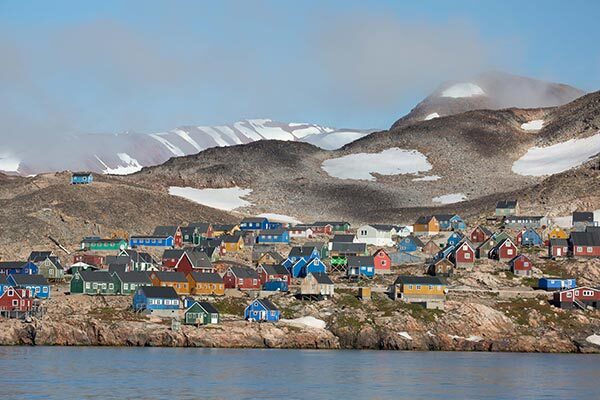
Albatros Expeditions is another operator that stands to benefit further from investment into Greenland – an autonomous territory of Denmark.
Craig Upshall, the line’s EMEA sales director, said: “Having one maybe or two runways in Greenland will open up the market to Greeland, particularly to North America which has fewer holidays than us in the UK.”
But Upshall highlighted how the Danish-owned line goes that extra mile on its Greenland itineraries and has decided not to use a local destination management company (DMC) in the area.
“We go into the communities and directly engage with them to understand how they interact rather than going through a mass DMC,” he explained. “We’re also bringing the locals onto the ships to show them what it is that we do. It’s about supporting them financially and showing them things from our side.”
New sustainability terminology
It has long been accepted cruise lines are ahead of agents when it comes to communicating the sustainability gains that are being made within the industry, while agents argue a line’s sustainability credentials don’t always help them make a booking.
Daniels, though, urged operators to come up with snappier sustainability terms “to help travel agents who are trying to get through to the consumer”. McKeon told delegates that rather than leaving “no trace” in destinations, operators “should leave a place better than when we arrived”.
’The Irish take years to book’
Galligan gave delegates some insight into the Irish cruise market and how it compares with the UK. “We’re behind the UK market in terms of cruise penetration and maturity,” he said.
“The expedition market is much smaller there. In Ireland, we have to explain what expedition cruising is. The customers might say that they want to go to Antarctica, but do they really understand what that means?
“In my opinion, it takes around three years for people to actually to book an Antarctica sailing after saying they want to go there.”
‘It brings a tear to your eye’
Chris Collins, expedition leader at Heritage Expeditions, said he’d been fortunate to visit some of the world’s most remote destinations in Vanuatu, the Solomon Islands and Papua New Guinea through work.
“Sometimes you’re on the first ship that has ever gone to these regions It even occasionally brings a tear to your eye. It’s simply amazing being able to interact with these communities,” he said.
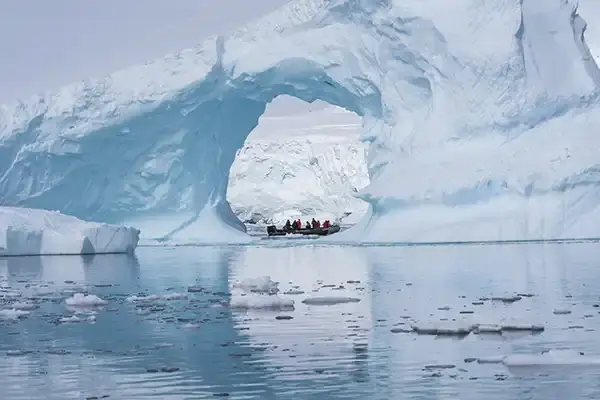
Mario Bounas, Swan Hellenic UK and Ireland general manager, believes there is more agents have to learn about when selling cruises to warm destinations.
“Warm weather destinations are almost harder to know about,” he said, adding: “There’s so much to learn. There will be a reason why each ship is going to these destinations at that moment. It’s about having all that information available when your customers come to you.”
The ships offering polar ‘safaris’
The conference concluded with a session titled “Introduction to Micro Cruises” with representatives from Aqua Expeditions, Secret Atlas and Antara Cruises taking centre stage.
Secret Atlas co-founder Michele D’Agostino extolled the virtues of sailing on a ship with fewer than 50 passengers. “We say that we do safaris in the polar regions,” he said. “We specialise in Arctic cruising with two ships carrying 12 people.
“We’re in the business of selling experiences and we want to give the best experiences to our guests. Because of our size, we launch the zodiacs five times in 24 hours, which is crazy. The bigger expedition ships cannot do that.”
In January 2025, new legislation will be introduced in Svalbard banning ships carrying more than 200 passengers from visiting parts of the Archipelago. But D’Agostino noted micro cruise ships will not be affected by these rule changes due to their size.
Milly Alva Haimberger, Aqua Expeditions’ global sales director, said the crew knew all the passengers’ preferences “right from the very beginning”.
All three representatives praised agents in the room, with Haimberger saying: "I live and breathe the trade. [Aqua Expeditions] do organically get direct bookings which is around 30% of our business. However, we've invested a lot of time and money in the trade."
D'Agostino added: "Travel agents are key for the growth of our business. We really understand where the trade comes from. We're launching a trade portal in a month's time and it will feature all of the collateral the trade needs."
Sign up for weekday travel news and analysis straight to your inbox

Harry Kemble
Supplier Directory
Find contacts for 260+ travel suppliers. Type name, company or destination.
